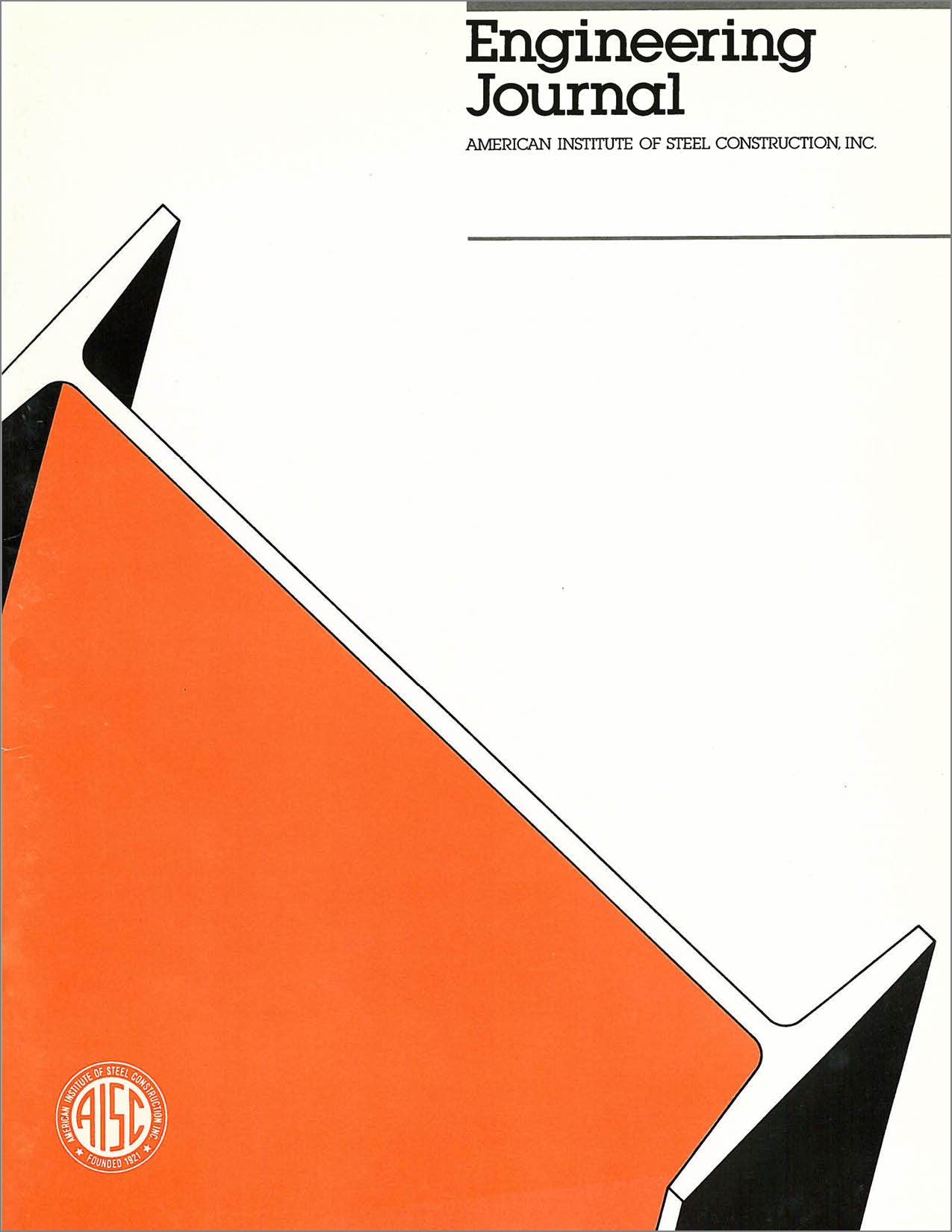A Simplified Look at Partially Restrained Beams
DOI:
https://doi.org/10.62913/engj.v28i2.572Abstract
Over the past few years, a great deal of effort has been expended within the research arm of the structural engineering profession addressing the topic of semi-rigid connections and their impact on structural response. A review of the recent literature shows that this interest is being maintained and even expanded. At the 1990 National Steel Construction Conference sponsored by the American Institute of Steel Construction, at least three papers dealt with semirigid connections1 while at the 1989 conference, the T.R. Higgins Lecture addressed semi-rigid connections. The AISC LRFD Specification, in an effort to increase the design awareness of this type of construction, altered the previously defined types of construction by combining the former type 2 and type 3 into a single category PR, partially restrained. Although the ninth edition of the ASD Specification retained the previously defined three types, there appears to be a heightened recognition that some attention must be given to moment-rotation characteristics of connections, even when it is anticipated that they are really behaving as pins. The intention of this paper is to take a step back and look at some simple analysis techniques and simple structures, thereby generating an improved level of understanding of the overall impact and importance that this type of connection has on building structures.

